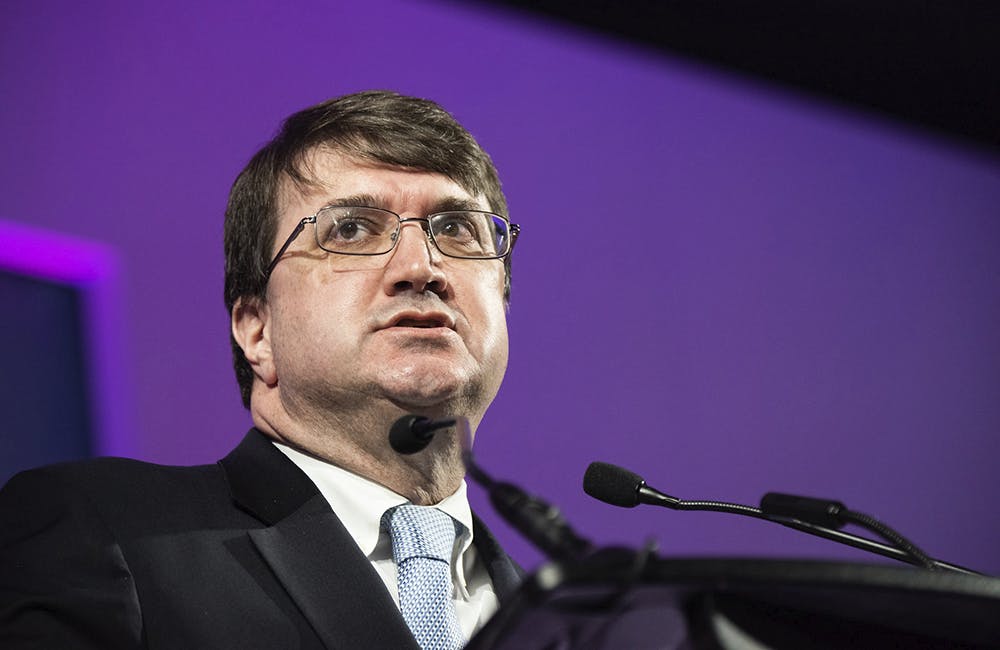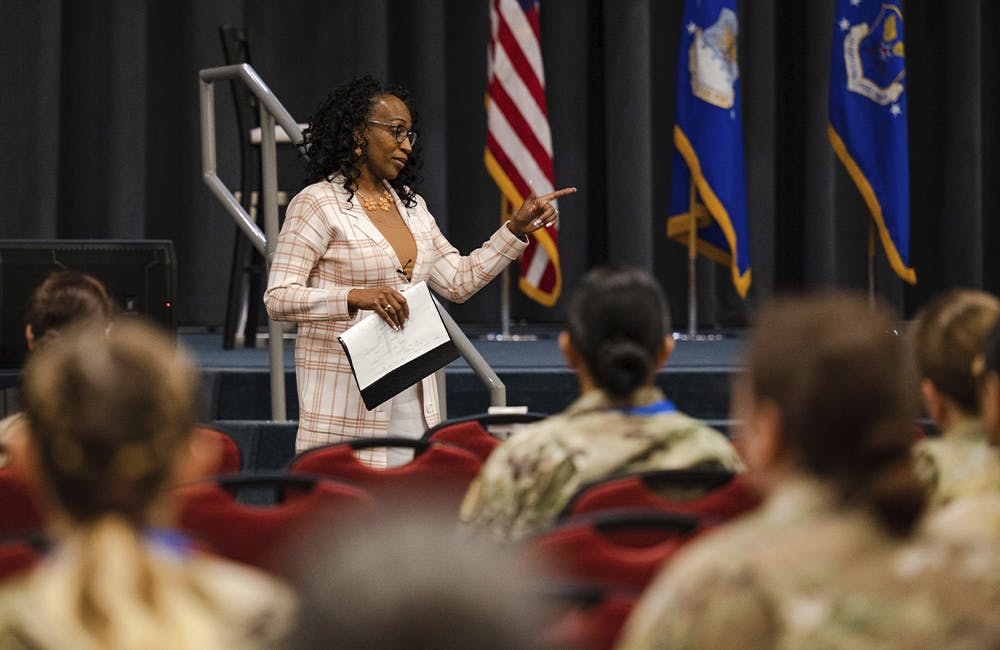Wilkie: VA Caring for 9,000 Civilians Amid COVID-19 Response
More details of the extent of the agency’s Fourth Mission reveal ongoing support for non-veterans.

Veterans Affairs Secretary Robert Wilkie outlined the extent of support VA has provided to bolster the national COVID-19 response in remarks presented before the George Washington University School of Media and Public Affairs last week.
One of the VA’s core responsibilities is to act as America’s health system of record during times of national crisis, particularly through augmenting local response when unforeseen stressors demand manpower and resources beyond those that can be provided by regional clinics. Known as the agency’s “Fourth Mission,” this entails caring for patients typically not treated within the VA’s network — and necessitates a judicious use of agency capacities while maintaining services allocated for America’s veterans.
As Secretary Wilkie disclosed, the agency’s Fourth Mission now covers nearly every state in the U.S. and includes thousands of non-VA patients currently receiving emergency care for COVID-19.
“As part of our Fourth Mission, we are in 46 states,” he said. “The only states we’re not in are Vermont, Indiana, Hawaii and Alaska. We are currently taking care of about 9,000 non-veterans in communities across the country.”
This has included a special attention to aiding the country’s epidemiological crisis points, with the VA shifting the focus of its Fourth Mission to covering patient care in regions where the upsurge of COVID-19 cases has overwhelmed local hospitals. This has also included converting building space into impromptu clinics to expand the availability of emergency care.
“Yesterday we moved into the state veterans home in Alexandria, Louisiana. I opened up ICU beds and medical surgical beds in Texas and Florida. On Sunday we sent doctors and nurses into the state mental health hospital in Phoenix,” Wilkie said.
According to data compiled by the Johns Hopkins Coronavirus Research Center, Texas and Florida, along with central Louisiana and the Phoenix metropolitan area, are currently managing some of the highest rates of known COVID-19 cases in the country.
As Wilkie detailed, the emergency treatment covered under the VA’s Fourth Mission has been responsive to the emergence of newfound COVID-19 crisis points.
“Our initial efforts were in the metropolitan New York area and in Louisiana. The first great surge we combated was in New Orleans,” Wilkie said.
The VA has also shifted the focus of its Fourth Mission toward aiding indigenous communities, with Native American health networks currently managing widespread patient overflow that has been exacerbated by ongoing challenges around underfunding and a shortage of vital equipment.
“Last week I met with the leadership of Indian Health to see how we can pool our resources first to help Native American veterans, but also to assist tribal governments and tribal health systems,” Wilkie said.
Beyond the dynamic nature of the VA’s Fourth Mission, the agency appears to be hiring a bulwark of personnel to manage the demands of the COVID-19 crisis — with the vast majority of new staff slated to be kept as long-term practitioners. This long-term hiring focus appears to be part of a preparatory measure in light of the potential for recurrent waves of COVID-19.
“In the last seven weeks we’ve hired over 18,000 [medical personnel]. 90% of those are permanent,” Wilkie said.
Wilkie emphasized that the VA is particularly attentive to finding ways of both recruiting and retaining essential staff, with the agency also endeavoring to provide competitive salaries that can draw health care workers who might otherwise choose to work for private networks.
“There are certain medical skills that we can’t attract unless we have the ability to compensate those professionals,” Wilkie said.
This is a carousel with manually rotating slides. Use Next and Previous buttons to navigate or jump to a slide with the slide dots
-

Trump's HHS Secretary Pick Eyes Transparency, Data Access
Nominee Robert Kennedy wants to improve transparency and data access to empower patients and enable innovation in health care technology.
4m read -

Federal Leaders Revamp Tech Workforce, Policy
Despite the rise in interest of emerging technology, federal leaders see data, policy and the workforce as a best vehicle for change.
4m read -

Pentagon Selects Second Tranche of Replicator Drone Program
The second tranche of systems is part of the DOD’s two-year plan to field thousands of autonomous systems by August 2025.
5m read -

Looking Back at the First Trump Administration's Tech Priorities
In his first term, Donald Trump supported cybersecurity, space policy and artificial intelligence development.
4m read








